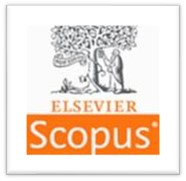Document Type
Article
Department
School of Nursing and Midwifery, Pakistan
Abstract
Background: Menstruation is perceived and interpreted differently under different social and cultural norms. There are a number of different practices, conceptions and misconceptions that have been reported in studies conducted in various countries. In Pakistan, there is a dearth of knowledge related to hygienic and unhygienic practices, discomforts, misconceptions related to nutrition, and restrictions imposed during menstruation. Therefore, this study was conducted with the objectives to identify the conceptions and misconceptions about menstruation, explore hygienic and unhygienic practices during menstruation along with the socio- cultural and religious restrictions imposed, and the discomforts with its management among adolescents who do not attend schools between the ages of 13-19 years, residing in the squatter settlements of urban Karachi. Based on the study outcomes, the community midwives can be used as vectors to disseminate published information related to management of menstruation. Consequently, midwives can contribute in improving the health indicators of the country.
Methodology: The methodology of the study used a qualitative exploratory study design. Three focus group discussions were conducted with 6-8 participants in each group. Six in-depth interviews were conducted with the key informants selected from three focus groups. The participants were non-school going adolescent girls. The data collected were thematically analyzed.
Results: The themes that emerged were; lack of knowledge about menstrual physiology, misconceptions about normal menstrual blood flow; discomforts and mismanagement, unhygienic practices during menstruation, alteration in nutrition, bathing, and socialization in both the religious and social activities.
Conclusion: Adolescent girls held misconceptions and beliefs regarding menstruation and its management. Dissemination of the findings to the health professionals will increase their awareness regarding menstrual management which would be helpful for improved reproductive health of the girls.
Recommended Citation
Rizvi, N, & Ali, T S. Misconceptions and mismanagement of menstruation among adolescents girls who do not attend school in Pakistan. Journal of Asian Midwives. 2016;3(1):46–62.



